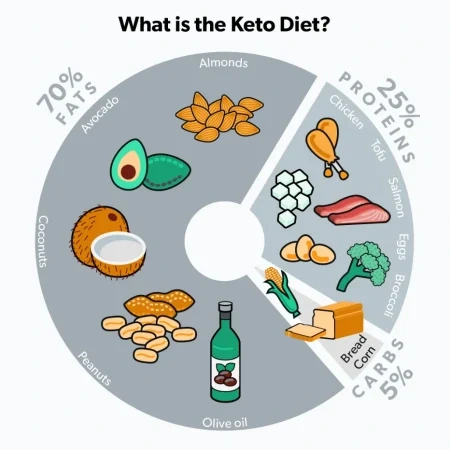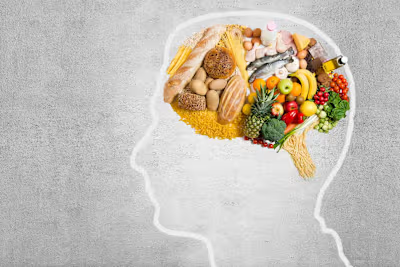Keto diet in middle age

In this article, we will explore the benefits and considerations of following a keto diet for individuals in their middle years, specifically focusing on building muscle. Whether you’re a middle-aged man or woman who is concerned about weight loss and diet, this article is designed to provide you with valuable insights and guidance.
Before diving into the specifics of building muscle on a keto diet, let’s first understand what the keto diet entails. The ketogenic diet, popularly known as the keto diet, is a low-carbohydrate, high-fat eating plan that aims to put your body in a metabolic state called ketosis. While the traditional approach to nutrition emphasizes a higher intake of carbohydrates, the keto diet flips the script by drastically reducing carbohydrate intake and increasing the consumption of healthy fats.
The Benefits of Keto in Middle Age
Now that we have a basic understanding of the keto diet, let’s explore its benefits for individuals in middle age. The keto diet offers several advantages that can support weight loss and promote overall well-being. Here are a few key benefits:
Weight Loss: The reduction in carbohydrate intake on a keto diet can lead to significant weight loss, especially when combined with a calorie deficit.
Increased Energy: By relying on fat as the primary fuel source, your energy levels may become more stable throughout the day, reducing energy crashes commonly experienced on high-carbohydrate diets.
Improved Mental Clarity: Many individuals report enhanced mental focus and clarity when following a keto diet.
Better Blood Sugar Control: The keto diet has shown promising results in improving blood sugar control, which is particularly essential for individuals in middle age who may be at a higher risk of developing insulin resistance.
Reduced Inflammation: Chronic inflammation can contribute to various health issues, including those commonly associated with aging. Some studies suggest that the keto diet may help reduce inflammation markers in the body.
The Importance of Building Muscle in Middle Age
As we age, our bodies naturally undergo changes, including a gradual decline in muscle mass. This loss of muscle, known as sarcopenia, can have negative impacts on our overall health and well-being. It becomes increasingly important for middle-aged individuals to prioritize building and maintaining muscle. Here are a few reasons why:
Metabolism Boost: Muscle is metabolically active tissue, meaning it burns more calories at rest compared to fat. By increasing muscle mass, you can give your metabolism a natural boost and potentially support weight management.
Improved Strength and Function: Building muscle can enhance your strength and improve your ability to perform daily activities with ease.
Bone Health: Muscle plays a crucial role in supporting bone health and reducing the risk of osteoporosis. By engaging in muscle-building exercises, you can help support your bone density and overall skeletal strength.
Reduced Risk of Injury: Strengthening your muscles can help protect your joints and reduce the risk of injury, which is particularly important as we age and become more prone to age-related joint issues.
The Synergy of Keto and Muscle Building
Combining the keto diet with muscle-building efforts can offer a synergistic approach to achieving your health and fitness goals. Although some may argue that carbohydrates are essential for muscle growth, several studies suggest that it is possible to build muscle while following a low-carbohydrate ketogenic diet. Here are a few strategies to consider:

Consuming an adequate amount of protein is crucial for muscle synthesis and repair. Ensure that you’re consuming enough high-quality protein sources, such as lean meats, poultry, fish, eggs, and plant-based protein.
Choose Healthy Fats: While following a keto diet, it’s important to prioritize healthy fats, such as avocados, olive oil, nuts, and seeds. These fats provide essential nutrients and support overall health.
Resistance Training: Engage in regular resistance training exercises, such as weightlifting or bodyweight exercises, to stimulate muscle growth and maintenance. Consult with a fitness professional to design a workout plan that suits your capabilities and goals.
Cyclic Keto Approach: Some individuals may benefit from incorporating cyclical ketogenic days, where they temporarily increase carbohydrate intake to support muscle glycogen replenishment. This approach requires careful planning and consultation with a healthcare professional.
While the keto diet has gained popularity for its potential benefits, it is crucial to consider the long-term effects, particularly for individuals in middle age. While research on the long-term effects of the keto diet is still limited, some potential considerations include:
Electrolyte Imbalance: The keto diet can impact electrolyte levels, so it’s important to monitor your electrolyte intake, particularly sodium, potassium, and magnesium.
Cholesterol and Heart Health: The keto diet tends to increase levels of LDL cholesterol (often referred to as “bad” cholesterol) in some individuals. It is essential to monitor your cholesterol levels regularly and consult with a healthcare professional if you have any concerns.
Digestive Issues: The high-fat nature of the keto diet can sometimes lead to digestive discomfort. Ensuring adequate fiber intake and staying hydrated can help mitigate these issues.
Nutrient Deficiencies: Restricting certain food groups, such as fruits, whole grains, and legumes, may increase the risk of nutrient deficiencies. Be mindful of incorporating a wide variety of nutrient-dense foods into your diet or consider supplementation if necessary.
Bone health is a primary concern for individuals as they age, especially women approaching menopause. While the keto diet may offer many benefits, including potential weight loss and improved blood sugar control, it’s important to consider its impact on bone health as well. Some studies suggest that long-term adherence to a keto diet may have negative effects on bone health due to a higher acidity level in the body. To support your bone health on a keto diet:
Ensure Sufficient Calcium Intake: Incorporate calcium-rich foods into your diet, such as dairy products (if tolerated), leafy green vegetables, and calcium-fortified alternatives.
Vitamin D Supplementation: Vitamin D plays a crucial role in calcium absorption and bone health. Consider discussing vitamin D supplementation with your healthcare provider.
Weight-Bearing Exercises: Engage in weight-bearing exercises, such as walking, jogging, or dancing, to stimulate bone remodeling and strengthen your skeleton.
Conclusion
In conclusion, the keto diet can be a viable option for middle-aged individuals looking to lose weight, improve their overall health, and even build muscle. However, it’s important to approach the keto diet with caution, taking into account individual needs and potential long-term effects. If you decide to embark on a keto journey, consider consulting with a registered dietitian or healthcare professional to ensure it aligns with your specific goals and requirements. Remember that proper nutrition and regular exercise are key components of a healthy lifestyle, and finding the right balance for your body and well-being should always be a priority.

diet, keto
fat
exercise
food
diet,
Like this project
Posted Apr 20, 2024
In this article, we will explore the benefits and considerations of following a keto diet for individuals in their middle age, specifically focusing on
Likes
0
Views
5





